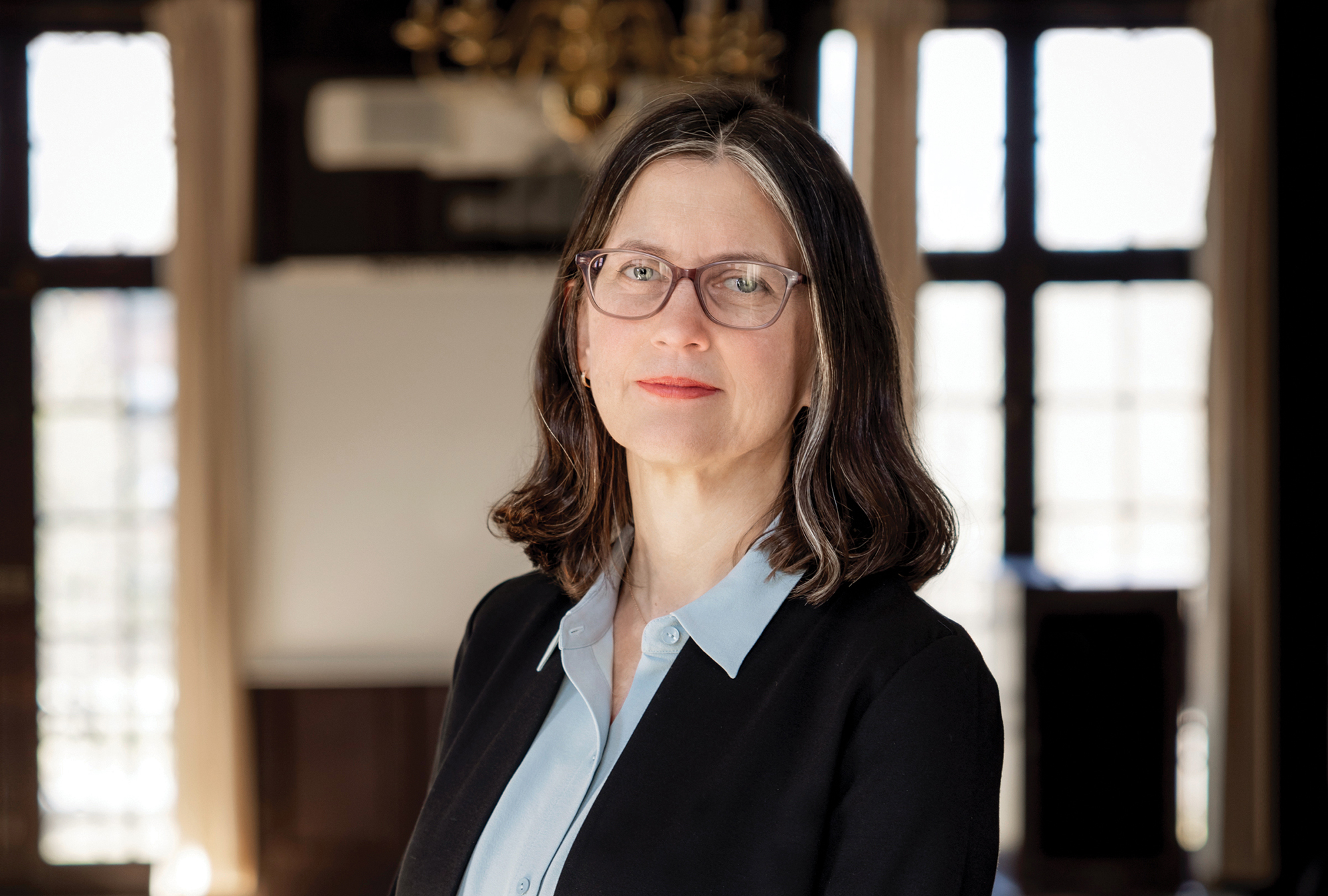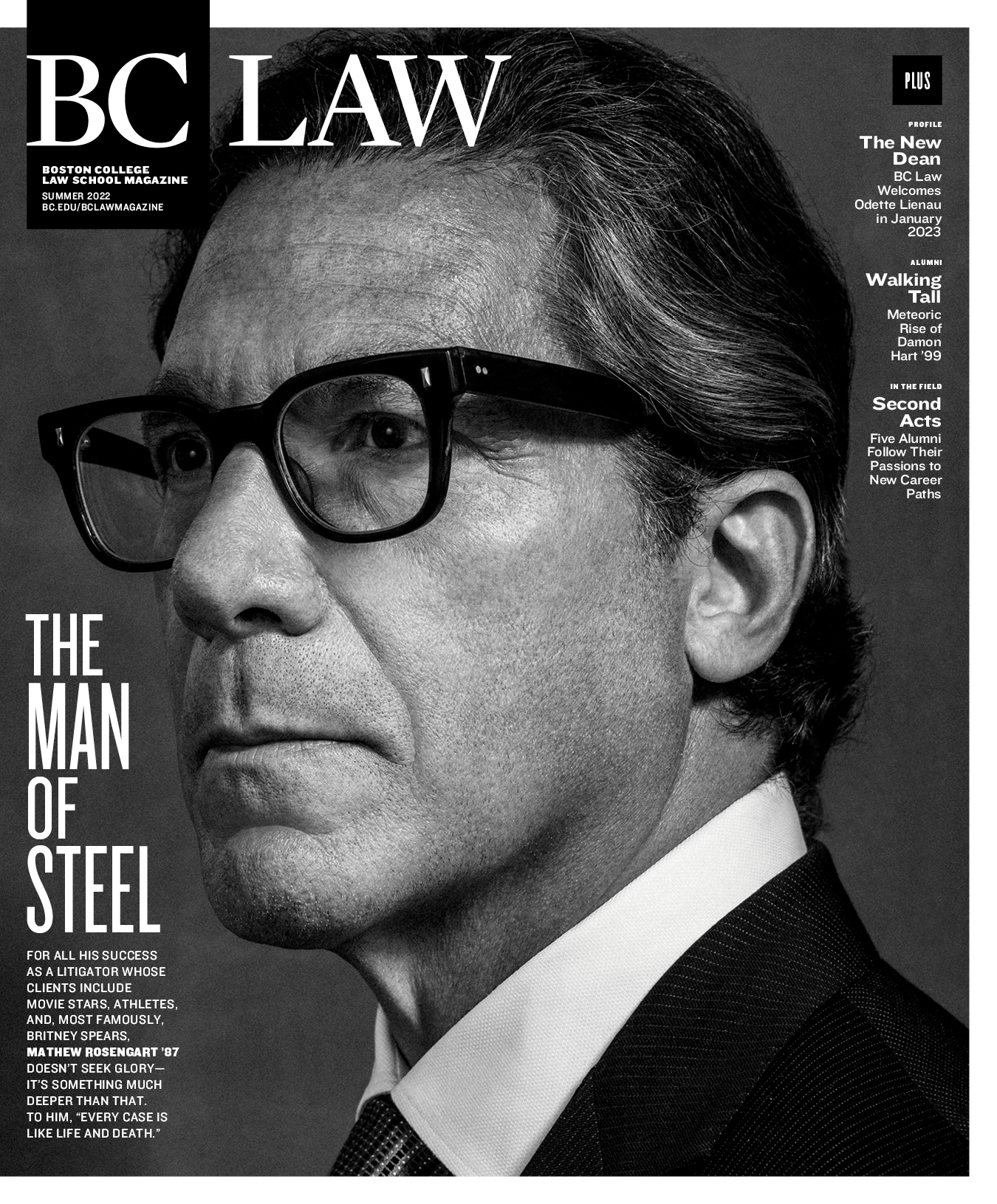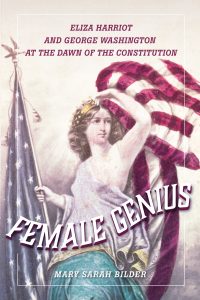When men were drafting the Constitution in Philadelphia in the summer of 1787, married women could not own land or earn their own income. Why, then, does the country’s founding document speak in gender-neutral terms? It refers not to man or men, but to person or persons. The pronoun “he” is used generically, as in the provision requiring that one charged with a crime be returned to the state from which he fled. Did the framers think that women were capable of engaging fully in civic life and were making it possible for them to do so?
In her new book, Female Genius: Eliza Harriot and George Washington at the Dawn of the Constitution, Founders Professor of Law Mary Sarah Bilder, the inaugural winner of the BC Law Faculty Prize for Excellence in Scholarship, posits that the answer is yes. At the time of the drafting, Bilder says, “the kinds of exclusions from political participation that come about in the 19th century aren’t yet in place.” Indeed, in New Jersey in this era, women and African Americans enjoyed full voting rights. It was only with the rise of white male identity politics in the 19th century that they lost their franchise. In other words, as the Constitution was being drafted, women’s political involvement was not only thinkable; it was happening. The delegates to the Constitutional Convention could have chosen to exclude women, but they did not. One of the reasons why, Bilder argues, was educator and entrepreneur Eliza Harriot Barons O’Connor.
Eliza Harriot was present and inescapably vocal in Philadelphia that summer, placing numerous advertisements and commentaries in newspapers to draw women to her university lectures and to her new women’s academy. George Washington himself attended one of her lectures just as the Constitutional Convention was getting under way. Essentially, Eliza Harriot was injecting into the public square the concept of “female genius.” Championed by some on both sides of the Atlantic, including by British thinker Mary Wollstonecraft, author of A Vindication of the Rights of Women (1792), female genius was the idea that women had the capacity to participate in the constitutional state, and the only thing holding them back was education—a barrier that could be remedied by schools for women. Throughout her life, as she moved from city to city nearly every two years to follow her husband, Eliza Harriot founded academies for women and distinguished herself, through her public lectures, as an embodiment of female genius.
Eliza Harriot’s vision of women’s education was expansive. But her competitor, Benjamin Rush, founder of Philadelphia’s Young Ladies’ Academy, believed in restricting women’s learning to that which made them better helpmates to their husbands. One wonders what he thought when his student Priscilla Mason delivered a graduation oration that left his vision behind and thoroughly embraced female genius: “The Church, the Bar, and the Senate are shut against us,” Mason declared. “Who shut them? Man; despotic man…Let us by suitable education, qualify ourselves for those high departments—they will open before us.”
Three-quarters of a century later, in 1869—nearly sixty years after Eliza Harriot’s death—Charlotte Rollin, a highly educated, twenty-year-old African American, accepted an invitation to address the South Carolina House of Representatives. The Civil War was over and Black men, at least theoretically, could vote. Despite the early promise of 1787, women could not. Rollin told the chamber that women should “be permitted to exercise the same privileges, and represent their own sex at the ballot box…for, until woman has the right of representation, her rights are held by an insecure tenure.”




